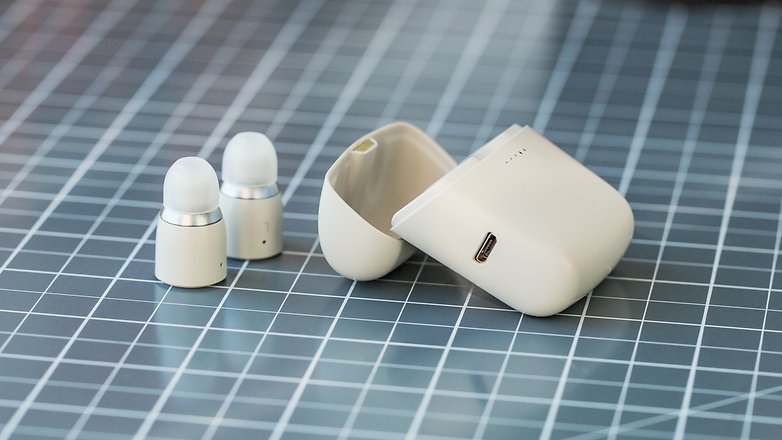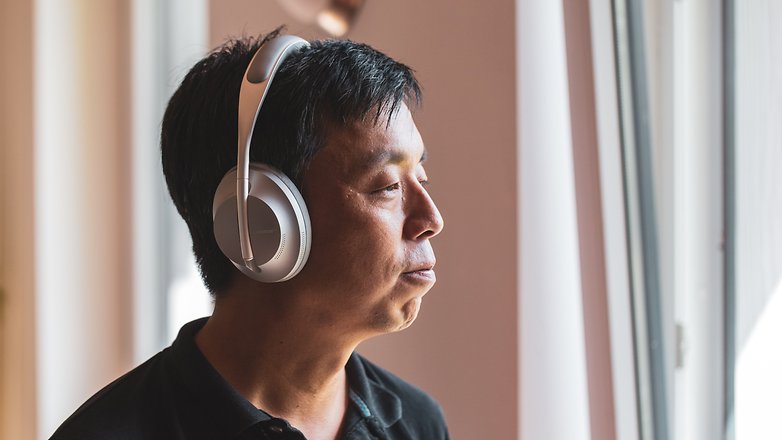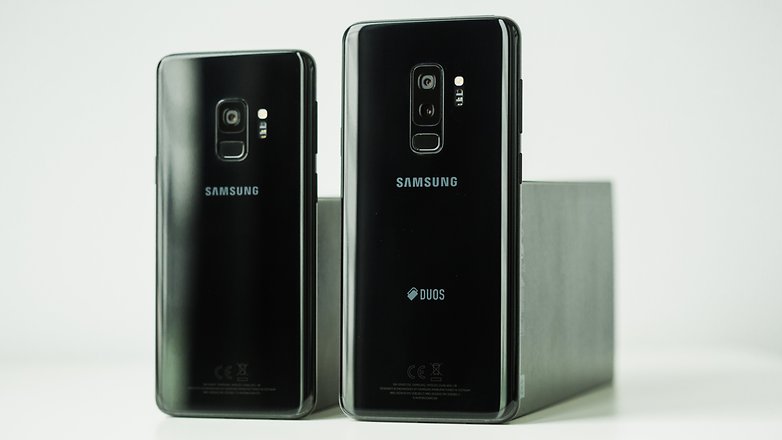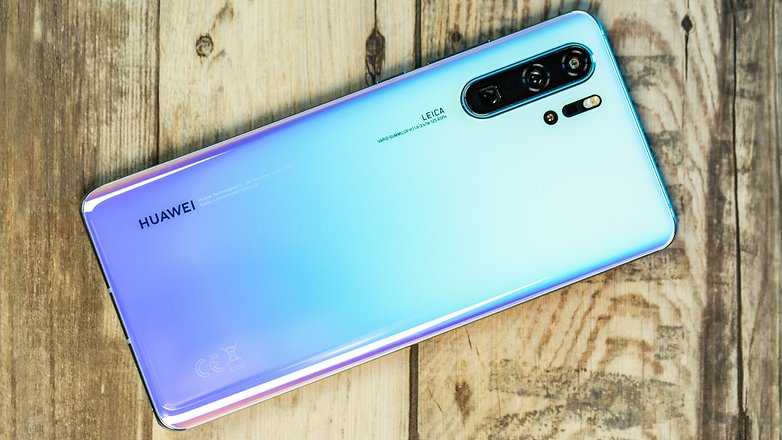LDAC, aptX, AAC... What's the best Bluetooth audio codec?

Wireless audio is clearly the future. As manufacturers kill off the 3.5mm headphone jack and continue to flood the market with Bluetooth headphones and true wireless earbuds, one phrase keeps cropping up in reviews - Bluetooth audio codecs. But what does this technical specification actually mean? What's the best codec for audio quality and connection stability? Allow us to explain.
Bluetooth audio codecs play a huge part in determining a pair of headphones or true wireless earbuds audio quality, latency, and can have an effect on things like battery life. You may have heard people going on about bitrates and compression, as well a more niche terms such a 'lossy', and this can be a minefield for the average consumer who just wants to buy a pair of cans with a codec that is going to guarantee great sound quality and a fast, stable connection. Here are the Bluetooth audio codecs you should be looking out for.
Shortcuts:
aptX
The Bluetooth audio codec aptX has been around since the late 80s. Back then, the idea was to deliver CD-quality sound over a Bluetooth connection. To beam this amount of data wirelessly, aptX uses compression, which helps reduce latency. AptX supports 16-bit/48 kHz LCPM audio data up to 352 kbps, and is what is considered a 'lossy compressed' format. That means you get really small file sizes. This is the most popular consumer Bluetooth codec out there today for MP3s. Most Android smartphones support this Bluetooth audio codec.
aptX HD
As you can probably guess, aptX HD is like a high-definition version of aptX. It is now owned by Qualcomm, so you'll find a lot of the more expensive Android smartphones packing Snapdragon SoCs also included atpX HD as part of the package. It supports high-definition audio transfers at 24-bit/48kHz with a max transfer rate of 576 kbps. All of this means that the audio quality is better than a CD. The signal-to-noise ratio is also much better on aptX HD compared to aptX, meaning you can hear more definition in the music, such as individual instruments which can blur together on even CD-quality audio.

In order to enjoy aptX HD, both your input device, such as your smartphone or media player, and your output device, such as a pair of Bluetooth headphones, need to support aptx HD. Popular phones such as the OnePlus 8 and 8 Pro, the Google Pixel 3a, and the Huawei P30 and P30 Pro support atpx HD. For headphones, it's mostly the big names in over-ear ANCs that are on the list such as the Sony WH-1000MX3 and Bowers & Wilkins PX products, as well as some more audiophile true-wireless earbuds such as the Cambridge Audio Melomania 1.
It's worth mentioning that aptx LL - for 'low latency' - also exists. Another of Qualcomm's technologies, aptx LL is designed to increase the end-to-end speed of audio transmission to as low as 40ms and is commonly found in gaming headsets and audio equipment for lip-syncing.
SBC
Sub-band coding (SBC) is the basic, default Bluetooth audio codec and thus represents the lowest quality audio over Bluetooth you should really be settling for. Support for SBC is not really a marketable selling point for either smartphones or headphones, but most will support this audio codec as a kind of basic requirement. It is mandatory for all A2DP-enabled devices Transfer rates max out at about 320 kbps.
AAC
Advanced audio coding (AAC) is what you get if you buy an Apple iPhone. It is also the default compression format for the free version of YouTube. AAC achieves MP3-quality sound rather than CD-quality, but the transfer rate is capped at 250 kbps. AAC consumes a lot of power, and can often impact battery life on smartphones and Bluetooth headphones. Other than Apple iPhones, premium brand headphones such as the Bose Noise Cancelling 700 support AAC. The argument between which is better, AAC and atpx HD has fallen victim to the Android versus iPhone debate. For me personally, I prefer aptx HD not only for sound quality, but reliability.

LDAC
LDAC is the proprietary audio codec from Sony. The star of the show here is the variable bit-rate, with the highest numbers for bitrate transfers in the business (anything up to 990 kbps is on the cards here). However, LDAC is not widely used and most smartphone manufacturers will require you to dig into the developer settings to turn it on if your device supports it. Still, once you get it running, you will be able to transfer three times the amount of data with LDAC than you can with the standard SBC in the same amount of time. Originally a Sony exclusive, LDAC has been on Android since 8 Oreo, and is now part of the Android Open Source Project (AOSP). Smartphones such as the LG V40 ThinQ and the Samsung Galaxy S9+ support the LDAC Bluetooth audio codec.

LHDC
This low-latency high-definition audio codec is the result of a dual development by the Hi-Res Wireless Audio (HWA) Union and Savitech. Like LDAC, transfer speeds of up to 900kbps and a sample rate of up to 96kHz are possible. Latency is also down with LHDC, beating even the impressive aptx LL. An ever-lower latency version, called LLAC, is popular with gamers. The Huawei P30 Pro was the first device to support this.

You need to be running Android 10 software to have access to this Bluetooth audio codec, with the Huawei Mate 10 becoming the first smartphone to support LHDC when it launched at the start of 2019.
Low Complexity Communication Codec (LC3)
We need to address a small asterisk with LC3, because it is brand new and not really available on consumer products yet. However, this is one for the future for sure. Coming out of the Bluetooth Special Interest Group (SIG), the new LC3 codec - part of the wider LE Audio product - has been designed for better tradeoffs on things such as audio quality and power consumption. Little else is known about LC3 in terms of technical specs, but the press release is full of claims LC3 is about to replace SBC as the default Bluetooth codec. The Bluetooth specifications for LE Audio are expected to be released throughout the first half of 2020.
Which is the best Bluetooth audio codec?
As with all audio or music in general, quality is very subjective. We all want high-definition audio and low latency, but there are tradeoffs to make for both, including power consumption and the stability of the connection. The truth is, it comes down to personal preference. Qualcomm's aptx HD has become something of an industry standard for HD audio on Android, but ask any Apple fanboy and they will tell you that AAC is just as good.
When you consider that both the source of your audio and the output device, such as your headphones, need to support the same Bluetooth audio codec, choosing the right products is more of a game of making pairs that it is chasing the most sought after audio codec support. If, like me, you use your smartphone with several Bluetooth audio output devices, such as multiple pairs of headphones and wireless speakers, the task is often to have parity across all of your tech rather than a single match made in heaven.
Did you find this guide to Bluetooth audio codecs helpful? Let us know in the comments section below.




I decided against BT headphones and bought a BT headphone amp running 5 different codecs, LDAC being one of them, so it now runs that exclusively. I found this article extremely helpful in choosing the right codec for me. I don't know if there's any BT amp vs BT headphone tests out there but it's something to consider when plunging into the BT pool.
AAC is in fact not a power-hungry codec. Being part of the MPEG standards, practically everything out there has very power-efficient hardware decoding of the format. Additionally, if using a good AAC encoder (such as Apple's Core Audio) it reaches transparent quality to any human ear already at 192 kbps.
you are pretty dumb if you think the human ear can only detect 192kbps. that is less than MP3 quality. 192kbps is very far from "transparent quality". you need to stop sucking the teat of a corporation that doesn't care about you. they literally sell your data to advertisers and openly admit it in their privacy policy.
That's not what was said at all, sir. What he implies is that most audio - music in this case - does not require an audio stream exceeding or even reaching 192kbps to be listened to properly.
I'd take a step back and read twice in future before attacking someone from your keyboard over your misinterpretations.
What is the relationship between Bluetooth versions and audio codecs?
AptX was probably not around in the late 80s, especially not for Bluetooth as that technology was introduced in the late 90s.
The original aptX algorithm was developed in the 1980s by Dr. Stephen Smyth as part of his Ph.D. research at Queen's University Belfast School of Electronics, Electrical Engineering and Computer Science;[4] its design is based on time domain ADPCM principles without psychoacoustic auditory masking techniques.
aptX audio coding was first introduced to the commercial market as a semiconductor product, a custom programmed DSP integrated circuit with part name APTX100ED, which was initially adopted by broadcast automation equipment manufacturers who required a means to store CD-quality audio on a computer hard disk drive for automatic playout during a radio show, for example, hence replacing the task of the disc jockey.
AptX was in fact developed in the 1980s.
I can't link, but sources supplied online.
Fair enough about the aptX technology as such, but the text confuses aptX as tech and using it in Bluetooth by saying "The Bluetooth audio codec aptX has been around since the late 80s. Back then, the idea was to deliver CD-quality sound over a Bluetooth connection."
"Back then" in the 80s there was no such thing as a Bluetooth aptX codec - this application was done much later. Partly because it was only in 1999 that the first Bluetooth product launched, with no aptX in sight. In fact, Qualcomm the current owner states that the first aptX enabled headphone from Sennheiser was introduced as late as 2009. No link possible, but search for aptx and history and you shall find.
Thank you, this was very helpful as I have been digging through the developer option in my Note 10plus to see which one is the best and now I have an idea of what I can use with my galaxy buds.
This is very helpful for readers IMHO. But the state of quality still takes a didtant back seat to convenience in wireless headphones.